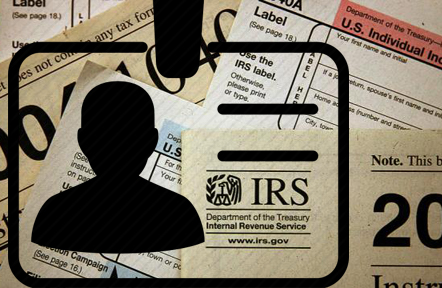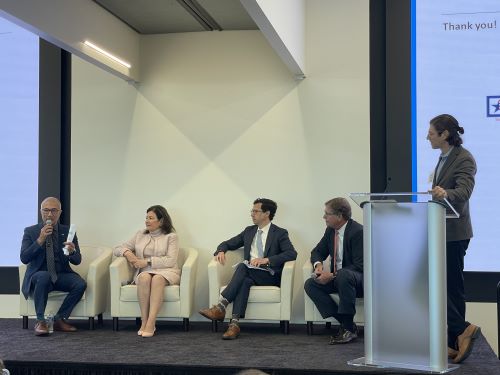How to Stop the Migrant Caravans That Are Headed to Texas
Several U.S.-bound caravans have attempted to make the difficult journey north from Central America in recent months. The latest caravan originated in Honduras with more than 600 migrants.
Authored by Stan Marek and originally published by Texas Monthly on January 15, 2022.
 When I opened my morning paper a few days ago, the front page featured an article about yet another caravan of Hondurans heading to Texas. Many are fleeing the violence in that country, which suffers from one of the highest murder rates in the world. But why do they come to the U.S.? For jobs. Migrants know that, thanks in part to COVID-related early retirements, we’ve got persistent labor shortage in this country, including in the construction industry, where my family’s Houston-based company operates.
When I opened my morning paper a few days ago, the front page featured an article about yet another caravan of Hondurans heading to Texas. Many are fleeing the violence in that country, which suffers from one of the highest murder rates in the world. But why do they come to the U.S.? For jobs. Migrants know that, thanks in part to COVID-related early retirements, we’ve got persistent labor shortage in this country, including in the construction industry, where my family’s Houston-based company operates.
At this point, I can hear many readers saying,”Well, the U.S can’t just open its borders to everyone in the world who wants a job.” I agree. But I would argue that it would benefit the U.S. economy to adopt a more practical, common-sense immigration policy, especially regarding the 11 million undocumented immigrants already living and working in the U.S., including about 1.6 million in Texas in a 2016 estimate by Pew Research Center.
Most of the undocumented immigrants work for someone. They produce goods and services that all of us use—for instance, through restaurants, construction companies, and landscaping contractors. Many are working with a fake ID and Social Security card they purchased at a flea market or on the internet. None of our federal agencies bother to verify these laborers’ legal status, but Washington is glad to accept the billions of dollars in Social Security payments made by these workers and their employers, for benefits few will ever receive. An even larger number of undocumented workers are employed as “independent subcontractors,” with no ID required—and often no taxes paid.
All American citizens benefit to some extent from this system, as we pay a bit less for our food, our landscaping, and our houses. The undocumented workers benefit, too, as they earn much higher wages than they did in their home countries. But this system’s costs to Americans far exceeds its benefits. Our abundant jobs and relatively high wages, along with the lack of any effective enforcement of immigration compliance by employers, create an irresistible magnet for more migrants than the U.S. wishes to assimilate. The pull is so strong that no border wall and no deployment of National Guard members can hold back the tide.
So what might a common-sense immigration reform look like—one that stands a chance of attracting support from centrist voters and public officials in both political parties? I have been exploring immigration reform for two decades, including through a website called RationalMiddle.com, and here’s what I think might work.
First, we need to pass the DREAM Act, which would provide a path to citizenship, including conditional residency and the right to work, for undocumented immigrants whose parents brought them to the U.S. before their sixteenth birthday. To date, some 700,000 of these young migrants who arrived before June 15, 2007, have obtained work permits through the Deferred Action for Childhood Arrivals program. These DACA recipients have given all their information to the government in return for a work permit. They have been fingerprinted and subjected to background checks. They pay taxes and contribute to society in other positive ways.
Some two million more young migrants—many of whom are now struggling to work off the books at odd jobs—would be eligible for the program, and for higher-value employment, if the required entry date were updated. We should do that and start signing up these kids who could immediately help solve our labor shortage. As evidenced by help-wanted ads, supply-chain disruptions, and rising inflation, employers in Texas and the rest of the U.S. need more workers now.
Second, we need to pass a law that would allow other undocumented migrants already in the U.S.—in many cases for decades—to come out of the shadows and work full-time at steady jobs. I and other reform advocates call this common-sense approach “ID and Tax.” It would offer legal status, but no path to citizenship, to any undocumented worker who consents to a background check and fingerprinting, and who will pay taxes. Workers would be issued a tamper-proof ID and would be entered into an online database, which potential employers would be required to use to verify their legal status. We need to know who is in this country, for national security reasons, and we need undocumented workers to pay the same taxes as legal workers, to level the playing field for them and their employers. Under this plan, undocumented workers could get a driver’s license, contact law enforcement without fear of deportation, and carry IDs that would allow them access to health care, eliminating many expensive, taxpayer-funded visits to hospital emergency rooms. This approach would make our country safer and generate billions of dollars in tax revenue.
Many on the left insist that all undocumented immigrants be given a path to citizenship. But this approach has no chance of winning majority support in Congress. I’m a practical businessman and believe in getting the best deal possible, rather than no deal at all. I say, let’s get everyone ID’d and then work toward a more comprehensive solution.
The key benefit of the “ID and Tax” approach is that it would stop the flow of undocumented workers where it’s most practical to do so—not behind a border wall, but rather at the job site. If Hondurans and other prospective undocumented migrants know they can’t get a job in the U.S., they won’t come.
The biggest obstacle to this practical reform is that the current system better serves the needs of some of our politicians. Some on the left take an all-or-nothing approach that is popular among many voters in their districts. Some on the right would rather have the problem than the solution, so they can continue to use immigration as a wedge issue and engage in expensive and ineffective theatrics along the border.
Change will come only when voters hold politicians accountable for practical results regarding immigration. So the next time you read about caravans of undocumented migrants heading toward Texas, please remember that a common-sense solution is available.
Stan Marek is the CEO of Marek Brothers Construction and the author of Deconstructed: An Insider's View of Immigration and the Building Trades.








